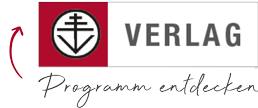

282 Seiten
Sprache English
2018 Cornell University Press
ISBN 978-1-5017-0937-1
Hauptbeschreibung
The Control Agenda is a sweeping account of the history of the Strategic Arms Limitation Talks (SALT), their rise in the Nixon and Ford administrations, their downfall under President Carter, and their powerful legacies in the Reagan years and beyond.Matthew Ambrose pays close attention to the interplay of diplomacy, domestic politics, and technology, and finds that the SALT process was a key point of reference for arguments regarding all forms of Cold War decision making. Ambrose argues elite U.S. decision makers used SALT to better manage their restive domestic populations and to exert greater control over the shape, structure, and direction of their nuclear arsenals.Ambrose also asserts that prolonged engagement with arms control issues introduced dynamic effects into nuclear policy. Arms control considerations came to influence most areas of defense decision making, while the measure of stability SALT provided allowed the examination of new and potentially dangerous nuclear doctrines. The Control Agenda makes clear that verification and compliance concerns by the United States prompted continuous reassessments of Soviet capabilities and intentions; assessments that later undergirded key U.S. policy changes toward the Soviet Union. Through SALT's many twists and turns, accusations and countercharges, secret backchannels and propaganda campaigns the specter of nuclear conflict loomed large.
Kurztext / Annotation
The Control Agenda is a sweeping account of the history of the Strategic Arms Limitation Talks (SALT), their rise in the Nixon and Ford administrations, their downfall under President Carter, and their powerful legacies in the Reagan years and beyond.Matthew Ambrose pays close attention to the interplay of diplomacy, domestic politics, and technology, and finds that the SALT process was a key point of reference for arguments regarding all forms of Cold War decision making. Ambrose argues elite U.S. decision makers used SALT to better manage their restive domestic populations and to exert greater control over the shape, structure, and direction of their nuclear arsenals.Ambrose also asserts that prolonged engagement with arms control issues introduced dynamic effects into nuclear policy. Arms control considerations came to influence most areas of defense decision making, while the measure of stability SALT provided allowed the examination of new and potentially dangerous nuclear doctrines. The Control Agenda makes clear that verification and compliance concerns by the United States prompted continuous reassessments of Soviet capabilities and intentions; assessments that later undergirded key U.S. policy changes toward the Soviet Union. Through SALT's many twists and turns, accusations and countercharges, secret backchannels and propaganda campaigns the specter of nuclear conflict loomed large.


